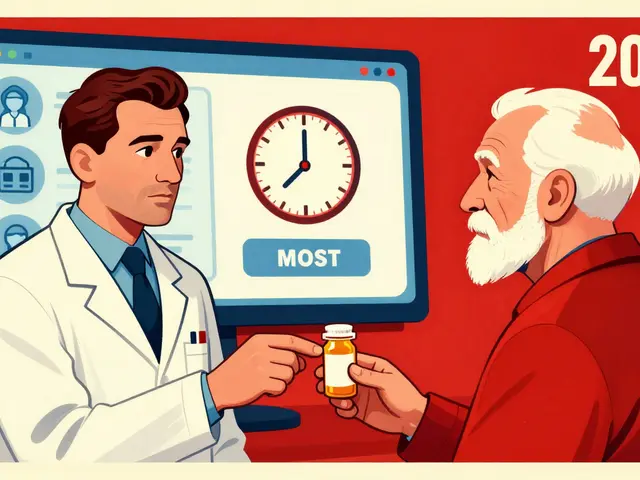Runny noses and itchy eyes ruin more autumn bushwalks in Perth than cockatoos ever could. Hay fever’s a rite of passage here, but what if your allergy pills hardly budge your symptoms while your mate swears he’s cured in half an hour? Turns out, our bodies react to antihistamines as differently as they react to pollen. The hunt for better relief isn’t about finding one miracle tablet – it’s about making allergy therapy personal, built for your unique biology.
Why Do Some Antihistamines Work Better for You Than Others?
Even if two people have the same allergy (birch, dust mites, you name it), their responses to meds can be polar opposites. Genetics, age, metabolism, other health issues, even your gut bacteria, all impact how your body handles drugs like loratadine or fexofenadine. You might have heard about enzymes called CYP450 — they’re like chemical scissors, snipping up medication in your liver so it can do its job (or get flushed out). Some folks naturally break down antihistamines fast, so the relief barely lasts. Others break them down slowly, which sometimes means side effects like drowsiness hang around longer.
Scientists have mapped out over a dozen genes playing a part in how you react to histamine and antihistamines. Australia’s Centre for Personalised Immunology (yes, there’s such a place) is now looking at cheek-swab DNA tests to predict whether certain antihistamines will work well for you. This goes beyond allergy blood tests; doctors aren’t just asking what you’re allergic to, but how your body will react to different meds. The right match can mean the difference between a clear head and a box of crumpled tissues.
The Rise of Tailored Allergy Therapy
Remember watching your parents stock up on clunky decongestants and thinking allergies just had to be endured? Fast-forward to 2025, and pharmacy counters buzz with talk about personalizing treatments. Pharmacists are starting to offer screening services – kind of like a ‘find your fit’ program for antihistamines. But it doesn’t stop at picking a different pill. There’s dose-adjusting, combo strategies (pairing non-drowsy meds with targeted nasal sprays), and even scheduling doses to dodge high pollen hours based on wearable air sensors.
One trial in Melbourne tracked 800 allergy sufferers using daily health apps. Turns out, those who adjusted their antihistamine dose by meal timing (morning pollen surges are real) and used allergy forecasting saw 50% fewer symptoms than folks who just popped a pill after symptoms hit. Not so long ago, if you didn’t get relief, you simply tried another brand—end of story. Now, allergists are looking at your data and tweaking therapy in real time, sometimes shifting you to new-generation drugs or even micro-dosing to cut side effects.
Adapting to body changes is another win. For example, post-menopausal women often report allergies ramping up, so they might need higher or split doses. Meanwhile, kids with fast metabolisms sometimes need smaller, more frequent doses, or liquid formulas custom-blended from bulk stocks by compounding chemists. This is personalized medicine in action — not one-size-fits-all, but matching the drug to the person.

Antihistamine Alternatives and the Latest Medications
It’s not just about tablets anymore. Sublingual immunotherapy (think: allergy tablets that dissolve under your tongue), anti-IgE biologics, and even gene-editing research all play a role in the newest allergy strategies. In the hunt for the best allergy medication alternative, a lot of patients are discovering options they never heard about from old-school GPs. Intrigued? You might want to check what’s on the market now by skimming through this handy list of best allergy medication alternative therapies for 2025.
One eye-opener from allergy clinics: drugs developed for asthma or skin disorders sometimes double as top-tier allergy fighters. For severe sufferers, injections with monoclonal antibodies (like omalizumab) have reduced symptom days by up to 60%. There’s also emerging research into using probiotics and microbiome support to change how your immune system reacts to allergens. And let’s not forget customized nasal sprays blended to match your particular set of triggers — some mix tiny doses of antihistamines with steroids for relief without the brain fog.
Here’s a quick snapshot of popular options and alternatives in a table:
| Medication/Strategy | Typical Use | Personalization Factor |
|---|---|---|
| Fexofenadine | Standard oral antihistamine | Genetic metabolism rate, dose timing |
| Sublingual tablets | Immunotherapy (pollen/dust) | Custom-tailored to allergy type |
| Biologic injections | Severe, resistant cases | Based on severity, immune profile |
| Custom nasal sprays | Combo relief | Tailored active ingredients & doses |
The best part about these approaches? You’re not just picking a pill—you’re getting a plan that responds when you need it, crafted from your symptoms, triggers, and lifestyle. And with more trackable home-testing kits and smarter phone apps, this is only set to grow.
Tips to Maximize Relief With Personalized Medicine
If you’re waiting for your doctor to start the personalization talk, you could be waiting a while. Most GPs still pull from standard allergy playbooks. Here’s what allergy researchers in Perth are suggesting if you want to take charge:
- Track your symptoms daily for two weeks. Use a free allergy tracking app or jot it down. Note time of day, weather, foods, and activities.
- Bring up medication reactions (good and bad) with your doctor. Mention if you’ve tried specific brands and how they worked — this helps point to your metabolic profile.
- If you’re on other meds, ask your pharmacist if any interact with antihistamines. Certain antidepressants or blood pressure medications slow down how your body clears them.
- Ask about dose timing: taking your dose before outdoor exposure, or splitting it into AM and PM, can sometimes double relief.
- Check if your GP offers genetic screening or works with personalized medicine clinics — it’s more available in bigger Aussie cities.
- Bring in data: pollen forecasts, air quality alerts (like those from WA’s Health Department), and your own symptom logs.
- If you’re not getting relief, suggest a trial of one of the new alternatives — bring in info from reliable sources, and ask about options beyond just scripts.
- Don’t forget lifestyle tweaks! Change pillowcases often, use an air purifier at night, and shower after outdoor activities to strip away pollen.
- If you have hay fever and asthma (about 30% of allergy sufferers do), ask if your allergy plan impacts your breathing meds, and watch for new combo inhaler options.
Researchers down under are also looking at how wearable sensors could link with pharmacy databases, sending alerts to remind you to tweak doses as wind and pollen counts spike. Not as sci-fi as it sounds — insurance providers in Victoria are piloting it this season.

Looking Ahead: The Future of Allergy Relief Is Personal
Personalized medicine isn’t just a fad; it’s where all of healthcare is heading, and allergies are one of the first everyday conditions getting the VIP treatment. As treatments become more targeted and data-driven, the guesswork finally fades. The best sign? Patients are reporting more symptom-free days, fewer skipped work hours, and (maybe best of all) less of that medicated brain-fog that old antihistamines used to cause.
All these new options don’t mean you have to ditch what works for you now, but if nothing’s quite cutting it, the time to explore personalized solutions is already here. Have a chat with a forward-thinking GP or pharmacist, dig into the latest alternatives, and don’t accept ‘one-size-fits-all’ as your destiny. Next allergy season, you might actually make it through a picnic without the tissues — and that’s something worth celebrating.







Rohan Puri
July 24, 2025 AT 06:37lol so now we gotta swab our cheek and pay for a DNA test just to pick a cold medicine? next they'll be charging us for how many tears we cry when we sneeze
Mandeep Singh
July 26, 2025 AT 00:44India has been doing this for centuries with ayurveda and herbs. Why are you all only now waking up to personalized medicine? Your science is late to the party.
Chris Bellante
July 27, 2025 AT 13:39CYP450 polymorphisms dictate metabolic phenotypes across populations. African genotypes show elevated CYP3A4 activity which accelerates antihistamine clearance. So yeah your fexofenadine's useless if you're from Lagos and your body treats it like coffee
Nicole Manlapaz
July 28, 2025 AT 12:21This is actually so cool!! I had no idea my meds could be this personalized. I've been taking loratadine for years and it barely helped but my cousin swears by cetirizine. Now it makes sense!! You guys are doing amazing work <3
Frederick Staal
July 29, 2025 AT 06:25Let me be the first to say this is the beginning of the end. Big Pharma is already buying up these genetic testing startups. Next thing you know, your insurance will deny you the "inefficient" antihistamine and force you into the "optimal" one they’ve patented. This isn’t medicine. It’s corporate control dressed in lab coats.
erin orina
July 29, 2025 AT 12:35This gives me hope!! 🥹 I’ve been suffering since I was 5 and no pill ever worked right. Maybe this is the year I finally get to breathe during spring 😭🌸
Lisa Uhlyarik
July 29, 2025 AT 23:46So you want me to track my sneezes and log my pollen exposure like some kind of data slave while Big Tech sells my histamine patterns to advertisers? Next they’ll send me ads for tissues every time I step outside. I’m not a spreadsheet
Kelley Akers
July 30, 2025 AT 04:55Honestly this whole "personalized medicine" trend is just rich people’s way of making their allergies feel special. Meanwhile, people in developing countries are still using expired Benadryl from the corner store. This isn’t progress. It’s elitist distraction.
Cameron Perry
July 30, 2025 AT 13:35Wait so if I have a fast CYP2D6 metabolism, does that mean I need to take my antihistamine right before going out? Or does timing not matter as much as the actual drug? I’m curious how much of this is science vs. just better timing
JOANNA WHITE
August 1, 2025 AT 03:11I’ve been using a nasal spray with azelastine + fluticasone for 3 years. It’s not magic but it’s the only thing that doesn’t make me feel like a zombie. Also showering after walks? Game changer. My pillowcase is now my best friend 💆♀️
Peggy Cai
August 2, 2025 AT 04:33We used to trust nature. Now we trust algorithms and gene maps. We’ve turned our bodies into machines to be calibrated. What happened to just living with it? To accepting that sneezing is part of being alive? We’re losing our humanity in the name of efficiency
Taylor Smith
August 3, 2025 AT 12:05I like that they’re looking at gut bacteria too. I’ve been taking probiotics for my IBS and noticed my allergies got way better. Maybe it’s all connected? Would love to see more research on that
Tammy Cooper
August 3, 2025 AT 15:39Oh so now I gotta wear a sensor on my wrist and sync it to my pharmacy app so I can get a notification to take my pill because the wind blew from the west? I’m out. I’ll just keep drinking tea and crying in my car
Alyssa Hammond
August 3, 2025 AT 22:47This is why I hate modern medicine. First they tell you to take a pill. Then they tell you to take a genetic test. Then they tell you to track your pollen. Then they tell you to buy a $300 nasal spray. Then they tell you to get a biologic injection. Then they tell you to change your pillowcase. And still you’re not fixed. It’s all just a money machine. They want you dependent. They want you buying. They want you scared. And they’re winning.
Jill Amanno
August 4, 2025 AT 15:59If your body’s reacting to pollen because of a misfire in your immune system, why are we treating the symptom and not the cause? We’re like people using duct tape on a leaking dam. We need to reprogram the immune response, not just numb it with chemicals. This is band-aid science. We need radical rethinking.
Kate Calara
August 4, 2025 AT 22:34They’re using your DNA data to sell you meds. But what if your genes were hacked? What if someone altered your CYP450 profile in a database and made you allergic to your own medicine? This isn’t science. It’s a bioweapon waiting to be weaponized. Wake up.
Chris Jagusch
August 5, 2025 AT 17:23Nigeria already has this. We use local herbs like neem and ginger root. Your pills are just chemicals. Your science is weak. We don’t need your DNA tests. We have wisdom from our ancestors. You’re just trying to monetize what we already know
Phillip Lee
August 7, 2025 AT 12:22The real innovation isn’t the drug or the test. It’s the shift from reactive to proactive. Medicine is finally moving from crisis response to prevention. That’s the paradigm shift. Everything else is just implementation
Nancy N.
August 8, 2025 AT 19:43i tried the sublingual one and it made my tongue numb like a dentist visit but it actually worked for like 3 days?? i think i might try it again